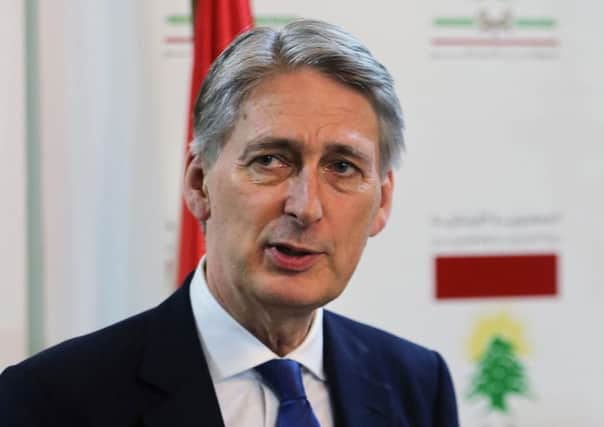IAIN WRIGHT: Hard times ahead on economic front


First, in terms of the big economic numbers, the outlook is truly diabolical. When the Tories came to power in 2010 as part of the Coalition Government, the first economic objective was the elimination of the deficit. George Osborne, the then Chancellor, said a country could not live with a persistent deficit. Well, it seems that the Tories can. After pledging that the deficit would be filled by 2015, the then Chancellor said that there would be a budget surplus by 2020/21, of £11 billion. He said that as late as March this year. Now, only nine months later, the Government is saying that the deficit in that year will be £20.7 billion. Debt is increasing because the economy is not going to grow as fast and so tax revenues are not as strong as they could have been with a resilient recovery.
I’m pleased that the Chancellor has acknowledged that infrastructure spending is important if Britain is to have a successful, modern, dynamic and productive economy. But that doesn’t seem to extend to the North East. In the Autumn Statement document, a single project – the Oxford – Milton Keynes – Cambridge Growth Corridor – costing £110 million, had a budget line all to itself, but the North East and its transport needs didn’t even warrant a mention, let alone a single budget line. I think that demonstrates the Government’s priorities – they don’t include the North East.
Advertisement
Hide AdAdvertisement
Hide AdIf you are in work, the chances are that your living standards will be squeezed still further in the next few years. The independent Institute for Fiscal Studies has crunched through the numbers from the Autumn Statement and has stated that the outlook for wages is “dreadful”, with the pay restraint lasting for more than ten years. Workers are forecast to be earning less in real terms – taking into account inflation – in 2021 than they did in 2008. The IFS conclude that Britain and its workers have not seen anything like this in terms of incomes and wages being squeezed and relative living standards falling for something like 70 years. The bigger losers will be lower income families, with the poorest third of families, many of whom live in Hartlepool, likely to see their standards of living fall.
The Chancellor has made a huge amount of the fact that the planned rise in fuel duty has been cancelled again. He suggests that this saves hard-pressed motorists money but it doesn’t really. It’s just spin – something that has never happened has been postponed again: I don’t really see how this actually saves anybody any real money or feel that filling the car up with petrol has gotten any cheaper as a result.
However, one way in which motorists and others will see real cash leaving their bank accounts is through the Government’s increase in Insurance Premium Tax, planned to rise from 10 per cent to 12 per cent in June next year. This is the third rise in this tax in 18 months; the Government clearly thinks that this is a sneaky stealth tax that nobody really notices until they come to renew their motor or home insurance. It is estimated that this rise alone will add about £51 to the average household’s insurance bill, at a time when insurance premiums are forecast to increase still further anyway.
The Autumn Statement was not glamorous, and not particularly eye-catching. But the figures, delivered in the downbeat and unshowy way from the new Chancellor demonstrate that Britain and our economy face a particularly hard time over the next couple of years, especially if you’re in low paid work and you live in the North East.